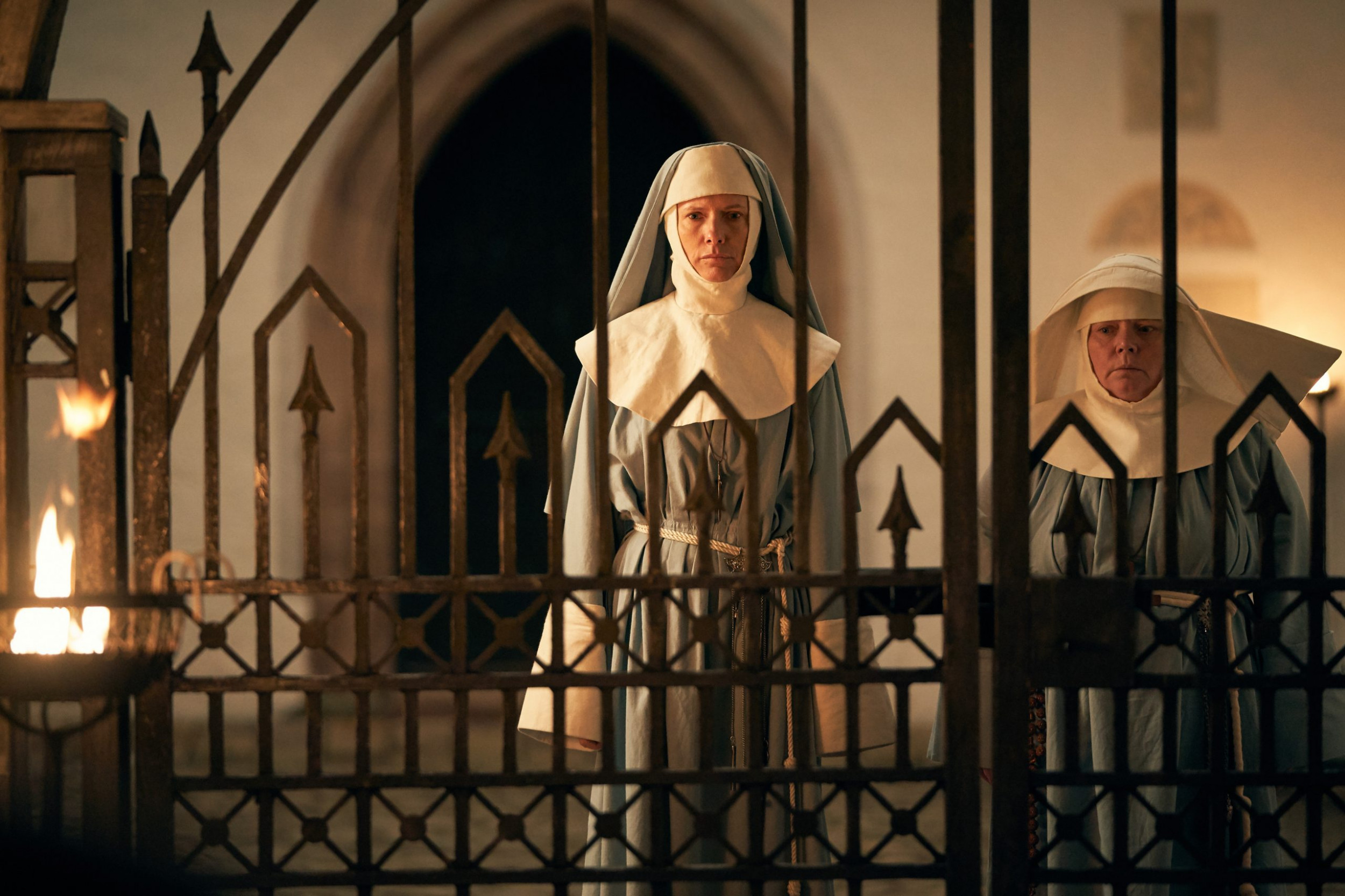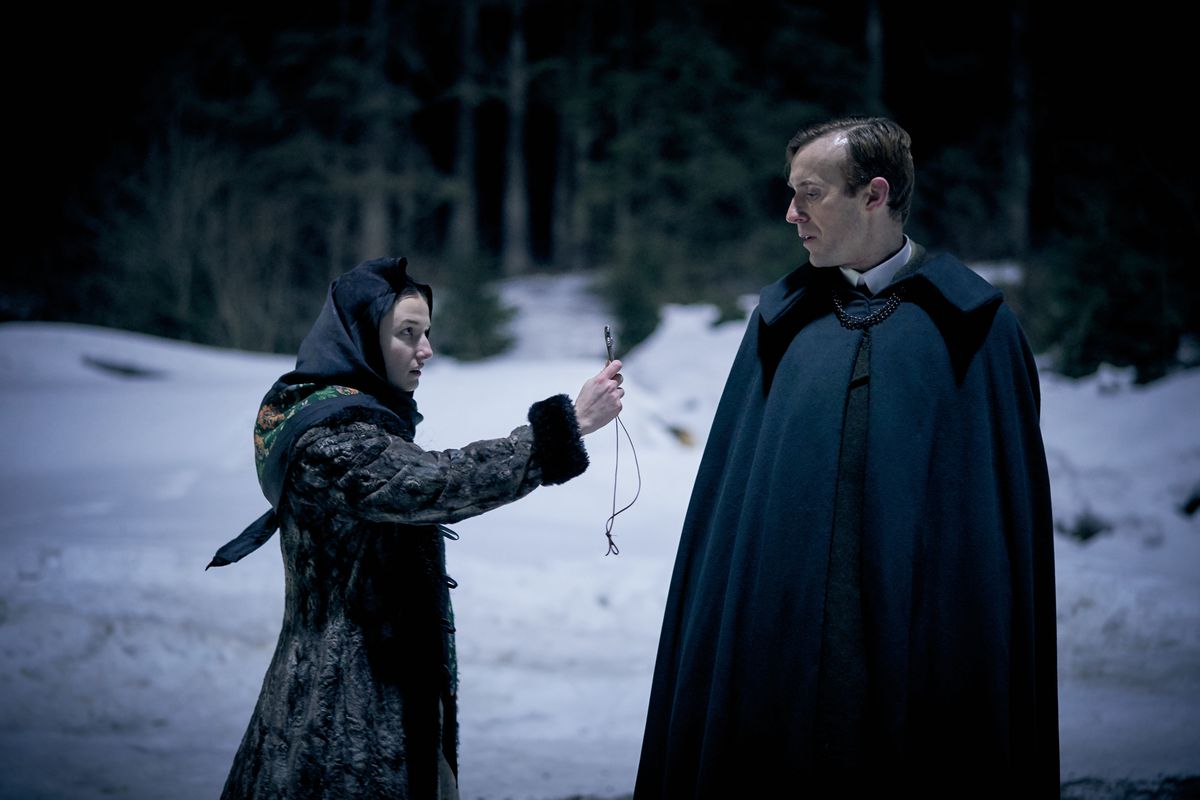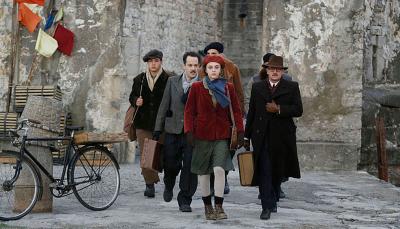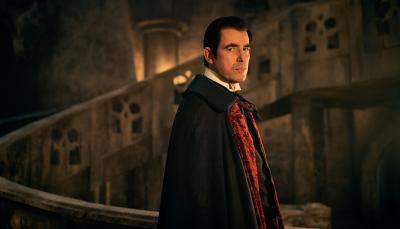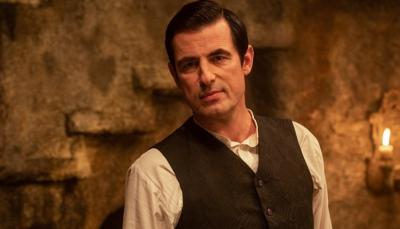Steven Moffat's 'Dracula' is a Confusing, Chaotic Mess
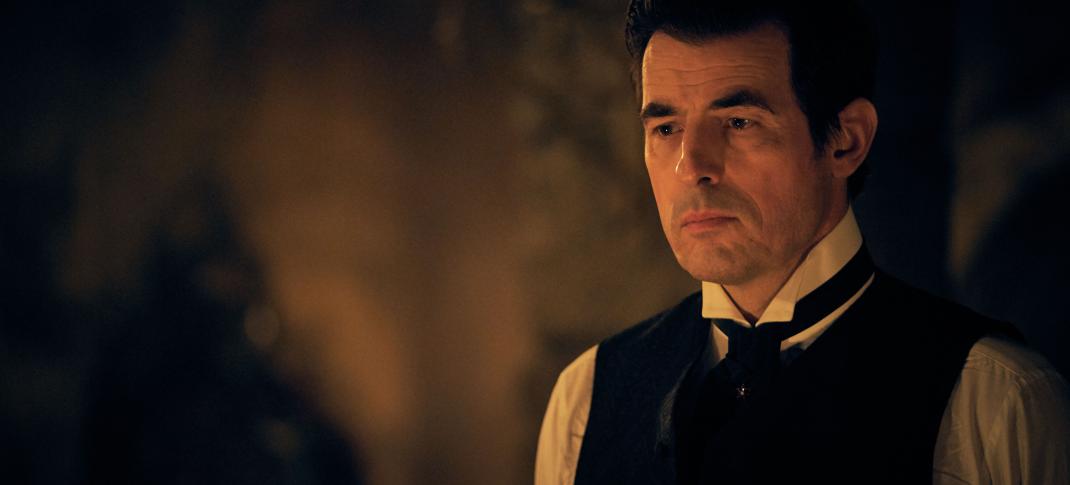
Claes Bang as "Dracula"
(Photo: Netflix)
Steven Moffat and Mark Gatiss's new Netflix series Dracula is not just bad - which it is - it's also deeply disappointing. It's bad because it's a poorly put together string of stories with little vision, no tonal consistency, questionable gender politics, and a narrative that ultimately doesn't go anywhere. It's disappointing on top of all that because it seems to believe that the best way to tell the story of Dracula is simply to become Sherlock.
Don't get me wrong, Moffat and Gatiss's previous collaboration, which brought the Great Detective into the present day and gave us three seasons of great television alongside a fourth we'll never mention again, is worth emulating in a lot of ways. But there are times, particualrly as Dracula goes on, that it feels like a beat for beat renactment of Sherlock, with the slight differnces being it's set in period Translyvania and the lead character is a literal monster who drinks blood.
Or is he?
Much like Sherlock struggled to write its leading man with consistency over the series' four seasons, Dracula can't even manage it for three episodes, giving us a version of the famous vampire that has little in the way of consistent personality traits, waffling from unreptenant killer to suave romantic hero, snarky entertainer, frightened lost soul, and confused fuddy duddy. Star Claes Bang has an amazing name and is full of charm and charisma, but his quippy Dracula often feels weird and out of place in the world the series itself creates. (IMO, there's really no need for any version of Dracula to use this many terrible puns, but your mileage may vary, I guess.)
The series itself often feels similiarly tonally confused. At various points, Dracula presents itself as a straight up horror tale, with desiccated corpses, rotting fingernails, and the sort of intensely gross body horror that will dare you to keep looking at the screen. At other times, it wants to be the story of a darkly romantic anti-hero, a monster wrestling with the emptiness of his own soul and the unspoken fears that make him the way he is. Occasionally, it's a fish out of water comedy, as the conventions of the period era and the modern day collide in ways that could charitably be described as merely repetitive.
In short: Moffat's Dracula is a series that doesn't know what it wants to be and, as such, is basically good at being nothing.
Plus, it has truly one of the most insane-but-definitely-not-in-a-good-way endings I've ever seen in anything, the kind that is so weird, I'm wondering if I wasn't slipped a bunch of drugs while screening it, and hallucinated the whole thing.
(Spoilers for Dracula follow from this point on, so beware.)
If you've listened to our Telly Visions podcast, you've heard me yell about all this already, but this series is just straight up bad. There's just nothing else to call it. And the thing is? It shouldn't be. It's Dracula, for heaven's sake. Making a terrible version of this story is like making a bad vodka tonic. It should be literally impossible. And yet.
To be fair, there are some elements of this series that really work. Given how often various vampire-related tales try to modernize the world of the undead, the period setting of the first two episodes feels something like a breath of fresh air. And the claustrophobic, dank locations - a crumbling castle full of secret passage ways and a doomed ship at sea, respectively - amp up the tension, providing plenty of opportunities to for things to, often literally, go bump in the night.
Dot and Em star Dolly Wells gives a breakout performance as Sister Agatha, an atheist nun who also happens to be a genderswapped version of the infamous vampire hunter Van Helsing. She's clever and sassy in the traditional Moffat female strong character mold, but her presence adds a much-needed frisson of electricity to the story, and it's honestly refreshing to see a woman opposite Dracula who is, in theory, an age appropriate contemporary.
Dracula's second episode, entitled "Blood Vessel" is its strongest, for several reasons. One, it's based on the section of Bram Stoker's novel almost no one remembers anymore and that approximately two versions even bother to adapt. The voyage of the Demeter is terrifying both because of its small and very specific space, but because "Blood Vessel" plays out like a murder mystery, And Then There Were None-style. Passengers disappear with no warning from around the ship, survivors accuse one another of horrible crimes, and the group realization that there's a vampire in their midst comes too late to save most of the folks on board.
Sure, Dracula's first two episodes lean heavily on what often feels like unecessary body horror, complete with lots of blood and that jerky, stop-motion movement style made popular by horror films like The Ring and The Grudge. But even with all that, it at least the show feels like it has an actual point of view during these two installments. Its third - which is where Dracula just completely comes off the rails - feels like nothing so much as a blatant bid for a second season flung in a blender with some straight up nonsense.
The decision to suddenly turn what had been a period series about a vampire into a modern day series about a vampire doesn't feel nearly as shocking as Dracula's producers seem to want us to find it. Instead, it comes off as derivative and largely pointless, as Dracula discovers cell phones and the internet, uses dating apps to solicit victims, and makes uncomfortable jokes about technology and feminism. How original, am I right? We've certainly never seen this before!
And the series has its fair share of other problems too, not the least of which is its inability to handle more than one multidimensional female character at a time.
Though Sister Agatha is the most entertaining part of the show, she's also basically a timeless avatar that ultimately helps Dracula sort out his own psychological issues. (And that's not even talking about the truly mindblowing ending in which the two have sex in the center of the sun.) The series virtually erases Mina Harker, the original story's primary female character, turning her into both an idiot and an afterthought And Lucy Westerna, a character that's been done dirty by almost every adaptation of the Dracula story in existence, fares no better in this 2020 version of things.
This Lucy only appears in the series' third episode, which reimagines her as a self-obsessed party girl who loves body glitter and is so generally vapid its unclear how or why Dracula ever becomes interested in grooming her for his demonic purposes. (And that's not even touching on the fact that the show tries to use her character to "subvert" the idea that Lucy is often portrayed as promiscuous by having her denounce the concept of slut-shaming even as the episode itself...frames her in terms that can be seen as little other precisely the thing she decries. Sigh.)
It's just so darn exhausting. All of it. These classic characters do better than this. We, as viewers, deserve better than this. Next time, guys, do. better. than. this.

